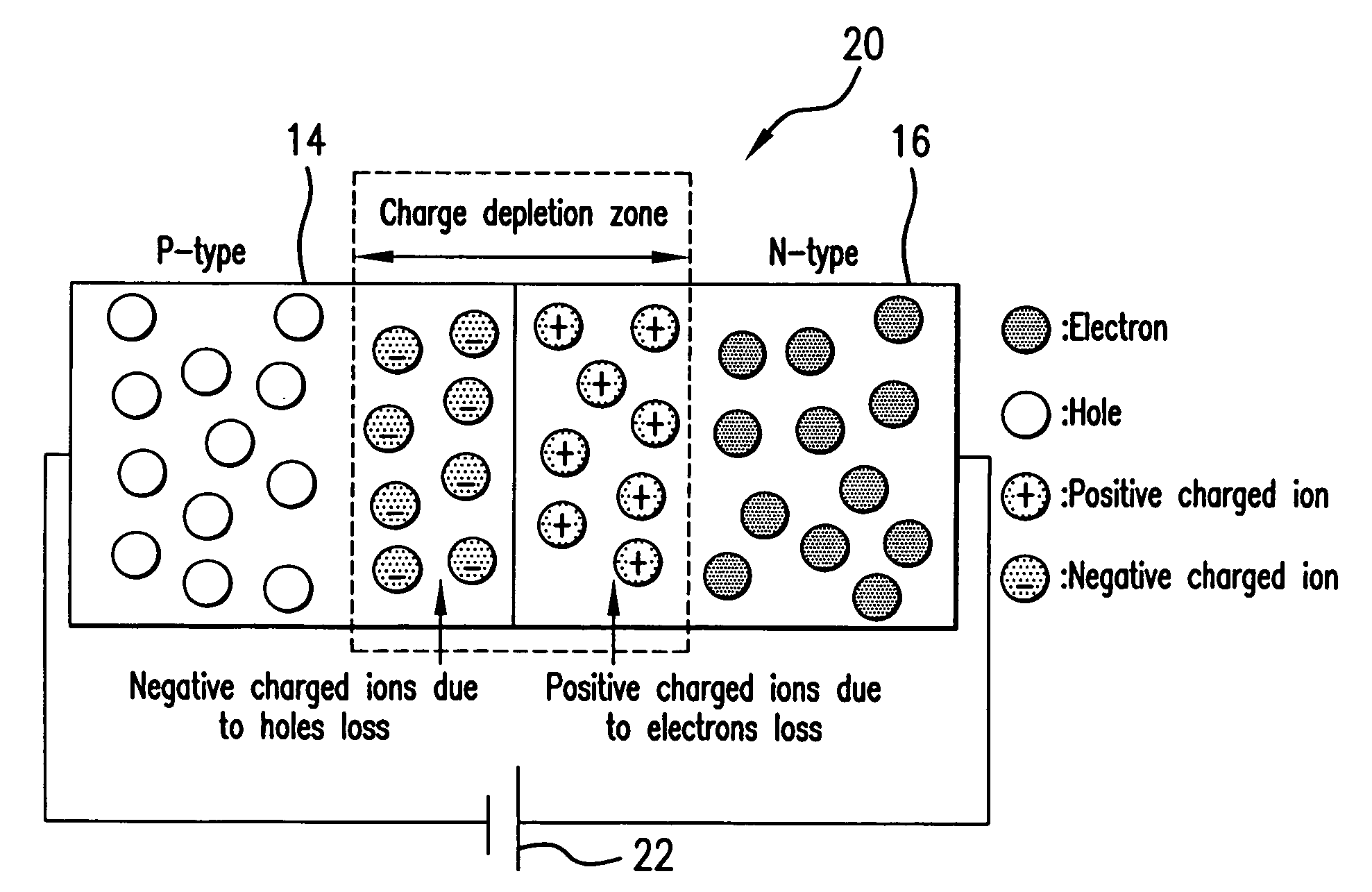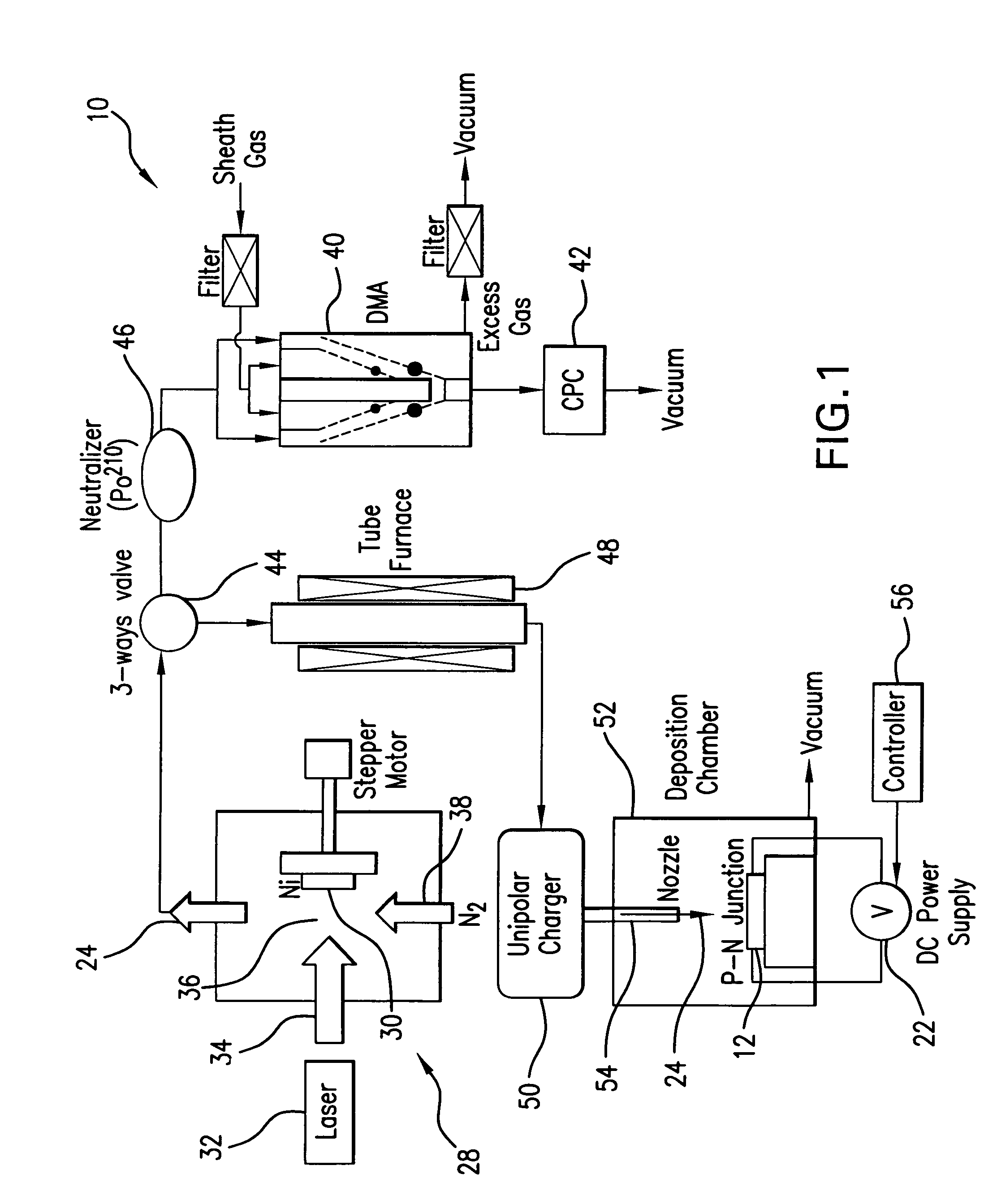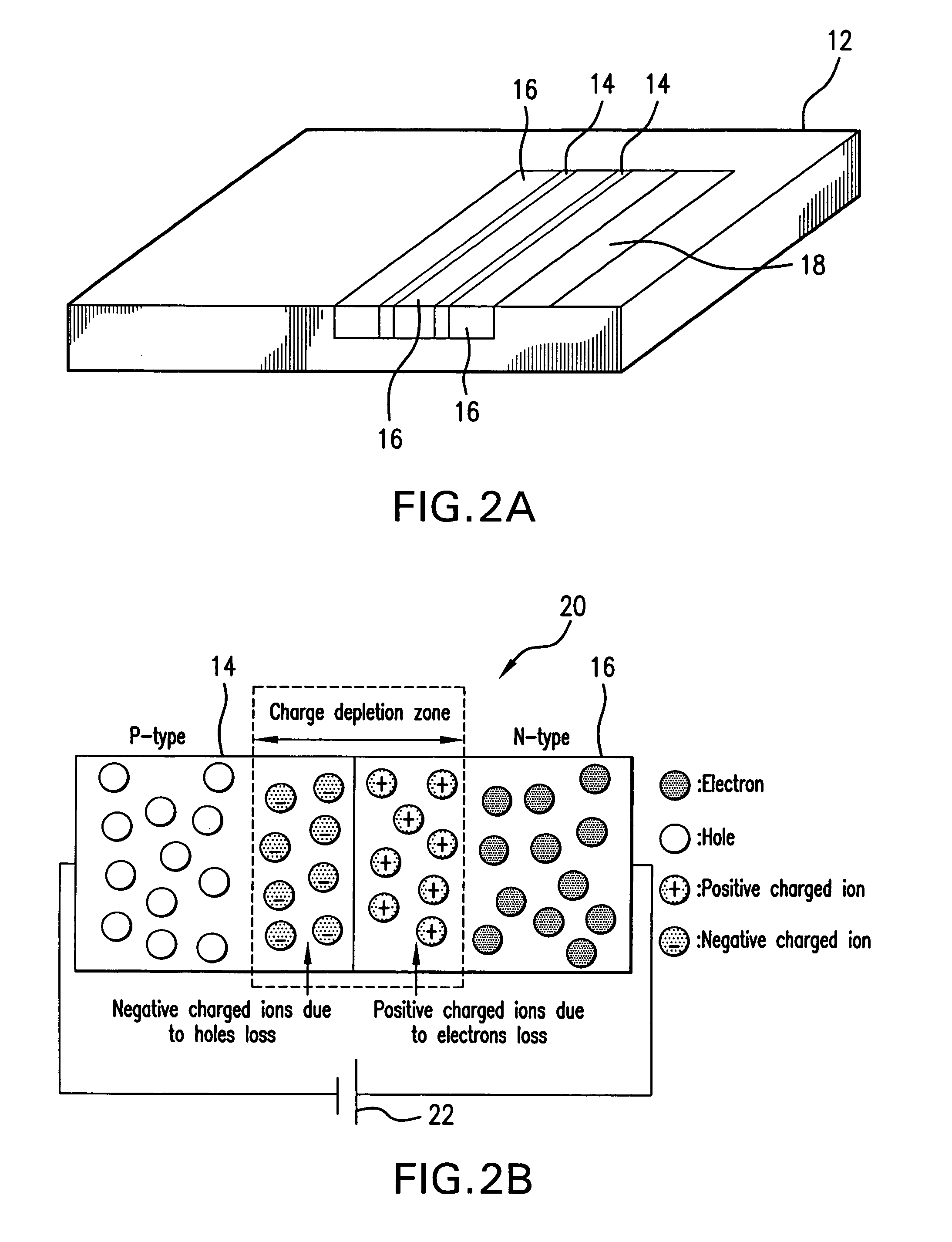Method and system for controllable deposition of nanoparticles on a substrate
a nanoparticle and substrate technology, applied in the field of microelectronic device manufacturing, can solve the problems of limiting the application of metal-semiconductor devices, damaging the metal-coated polymer stamp,
- Summary
- Abstract
- Description
- Claims
- Application Information
AI Technical Summary
Benefits of technology
Problems solved by technology
Method used
Image
Examples
Embodiment Construction
[0056]Referring to FIG. 1, a system 10 is shown for controllable nanoparticle deposition. A patterned substrate 12 shown in FIG. 2A, is patterned with an array of p-doped regions 14 and n-doped regions 16. The stripe-like pattern of p- and n-doped regions shown in FIG. 2A is only presented as an example. The p- and n-doped regions may be arrayed in any fashion to comply with an architecture of a nanoparticle-based device 18 to be fabricated on the substrate 12.
[0057]FIG. 2B illustrates in simplified form a p-n junction 20 formed on the substrate by respective p-doped region 14 and n-doped region 16. In the region where the p- and n-doped regions 14 and 16 are in contact, the electrons from the n-type region 16 diffuse towards the p-type region 14 and combine with the holes to form a charge depletion zone and the build-up of a net charge in each region.
[0058]When a reverse bias is applied to the p-n junction, the width of the charge depletion zone is increased, and an additional elec...
PUM
| Property | Measurement | Unit |
|---|---|---|
| temperature | aaaaa | aaaaa |
| size | aaaaa | aaaaa |
| size | aaaaa | aaaaa |
Abstract
Description
Claims
Application Information
 Login to View More
Login to View More - R&D
- Intellectual Property
- Life Sciences
- Materials
- Tech Scout
- Unparalleled Data Quality
- Higher Quality Content
- 60% Fewer Hallucinations
Browse by: Latest US Patents, China's latest patents, Technical Efficacy Thesaurus, Application Domain, Technology Topic, Popular Technical Reports.
© 2025 PatSnap. All rights reserved.Legal|Privacy policy|Modern Slavery Act Transparency Statement|Sitemap|About US| Contact US: help@patsnap.com



